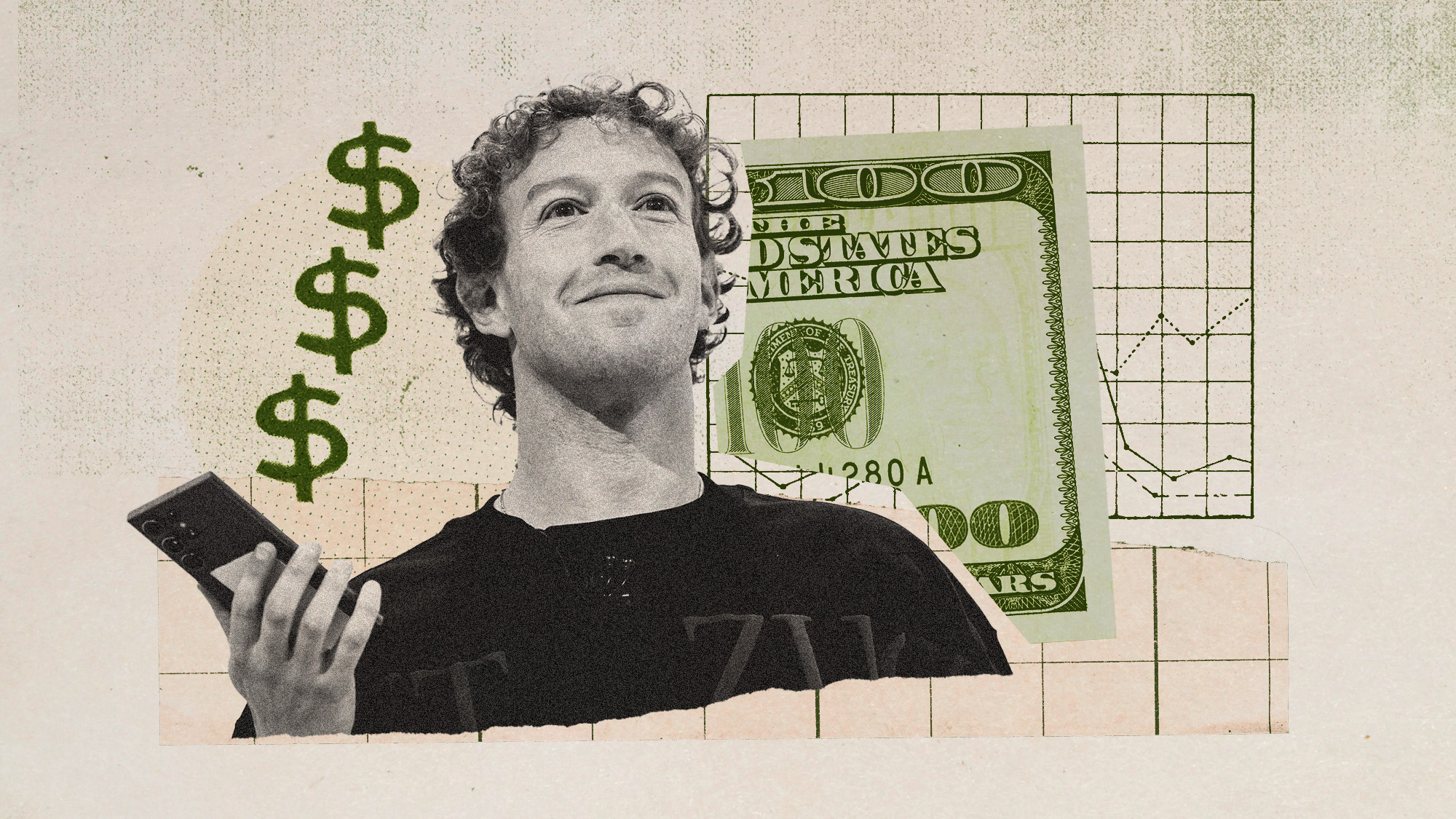40% of online advertising misses the target: here's why
Make them funny, sexy, cute and illuminating – but what really matters is that they are unpredictable
A free daily email with the biggest news stories of the day – and the best features from TheWeek.com
You are now subscribed
Your newsletter sign-up was successful
I know I’m not alone in being cross with online advertisements. In fact, since writing articles on Singularity and Virtual Reality I am being stalked by ads for eye-tracking goggles and brain sensors.
At least they are vaguely more appropriate than the Facebook ads I get pushed: you can keep trying, Facebook, but I’m not going to post a picture (below) that says, ‘Far away is never too far for friends’. What does that even mean?
So it doesn’t surprise me that Nielsen said on Friday that 40 per cent of online ads aren’t hitting their target audience. It is pretty rare that I’ll ever click on an advertisement being pushed at me - even if (especially if) I’ve looked at the product before.
The Week
Escape your echo chamber. Get the facts behind the news, plus analysis from multiple perspectives.

Sign up for The Week's Free Newsletters
From our morning news briefing to a weekly Good News Newsletter, get the best of The Week delivered directly to your inbox.
From our morning news briefing to a weekly Good News Newsletter, get the best of The Week delivered directly to your inbox.
Last week the UK government announced it was about to increase its ad spend by 22 per cent to almost £300 million to explain deficit reduction, the Scottish independence referendum and Britain’s role in Afghanistan. Since all of these campaigns will include a significant amount of digital spend I’m hoping they are going to be hiring someone better than Facebook to do it.

With these stories bothering me I visited Chinwag Psych’s conference on Behavioral Science last week and learned a bit about what does make people pay attention online.
Communication guru Mark Borkowski tossed around the phrase “idea porn” while he discussed what triggers you need to get people to pay attention and make a decision to do something. In short, he says: make it funny, sexy, cute, shocking, illuminating, spectacular, controversial, topical, and with a touch of schadenfreude. Or when all else fails, add a celebrity.
Brian Massey's advice is to focus on the brain when you are trying to get people to buy, click or read. The “bouncers" that filter out all of the “language noise” that you don’t need to pay attention to are Broca’s area and Wernicke's area.
A free daily email with the biggest news stories of the day – and the best features from TheWeek.com
To get Wernicke’s area engaged, relevant, emotional words work wonders. For example, which one of these links for an addiction centre would you guess gets more clicks:
“A place of New Beginnings.”
or
“Addiction torments Addicts and their Loved Ones.”
Using the second title increased clicks by 184 per cent because Massey says, “Language is not just decoded, it is adorned with memory, emotion and meaning.” Wernicke’s area is being wound up by the second title because it is “a complete story in seven words”.
Meanwhile Broca’s area is the part that tells you the difference between grass blowing in the wind and grass being stomped on by a tiger. It filters out the predictable and highlights the strange or unexpected. Guess which of these got the most clicks:
"Free Marketing Research: We hold all the secrets to internet marketing. Buy Now!"
or
"Free Marketing Research: Lousy Marketing ideas. Don’t come to our Site."
The second one - because it’s unexpected and inconsistent with what you’re expecting. You’re tricking Broca’s bouncers.
Finally, a word on pictures.
André Morys put people in an MRI scanner and showed them two different websites: that of Amazon-owned Zappos and a relatively unknown company called Shoe Guru.
Now, I am a fan of the Zappos CEO Tony Hsieh and his Downtown Project, but the Zappos website, while easy to navigate, is more cluttered than sexy. Shoe Guru’s site on the other hand focuses on one “hero shot” of each shoe.
Morys’s MRI scan showed that nucleus accumbens (the part of the brain responsible for emotion) was stimulated much more when people looked at Shoe Guru than Zappos. You could see the brain producing feelings of desire, “like what you get from drugs or when you see an Apple product”. He argues that targeting the nucleus accumbens in this way gets you from “I’m able to buy it" to "I want to buy it” to “I have to buy it” as fast as you possibly can.
Where does this leave the government in their ad campaign that aims to convince the Scots to vote No to independence in the upcoming referendum? More in the need of brain scientists than Don Draper, I’d wager.
-
 Switzerland could vote to cap its population
Switzerland could vote to cap its populationUnder the Radar Swiss People’s Party proposes referendum on radical anti-immigration measure to limit residents to 10 million
-
 Political cartoons for February 15
Political cartoons for February 15Cartoons Sunday's political cartoons include political ventriloquism, Europe in the middle, and more
-
 The broken water companies failing England and Wales
The broken water companies failing England and WalesExplainer With rising bills, deteriorating river health and a lack of investment, regulators face an uphill battle to stabilise the industry
-
 Is social media over?
Is social media over?Today’s Big Question We may look back on 2025 as the moment social media jumped the shark
-
 Social media: How 'content' replaced friendship
Social media: How 'content' replaced friendshipFeature Facebook has shifted from connecting with friends to competing with entertainment companies
-
 Meta on trial: What will become of Mark Zuckerberg's social media empire?
Meta on trial: What will become of Mark Zuckerberg's social media empire?Today's Big Question Despite the CEO's attempt to ingratiate himself with Trump, Meta is on trial, accused by the U.S. government of breaking antitrust law
-
 What does an ex-executive's new memoir reveal about Meta's free speech pivot?
What does an ex-executive's new memoir reveal about Meta's free speech pivot?Today's Big Question 'Careless People' says Facebook was ready to do China censorship
-
 What's Mark Zuckerberg's net worth?
What's Mark Zuckerberg's net worth?In Depth The Meta magnate's products are a part of billions of lives
-
 Is the AI bubble deflating?
Is the AI bubble deflating?Today's Big Question Growing skepticism and high costs prompt reconsideration
-
 How social media is limiting political content
How social media is limiting political contentThe Explainer Critics say Meta's 'extraordinary move' to have less politics in users' feeds could be 'actively muzzling civic action'
-
 Twitter's year of Elon Musk: what happens next?
Twitter's year of Elon Musk: what happens next?In the Spotlight 'Your platform is dying', says one commentator, but new CEO is aiming for profitability next year